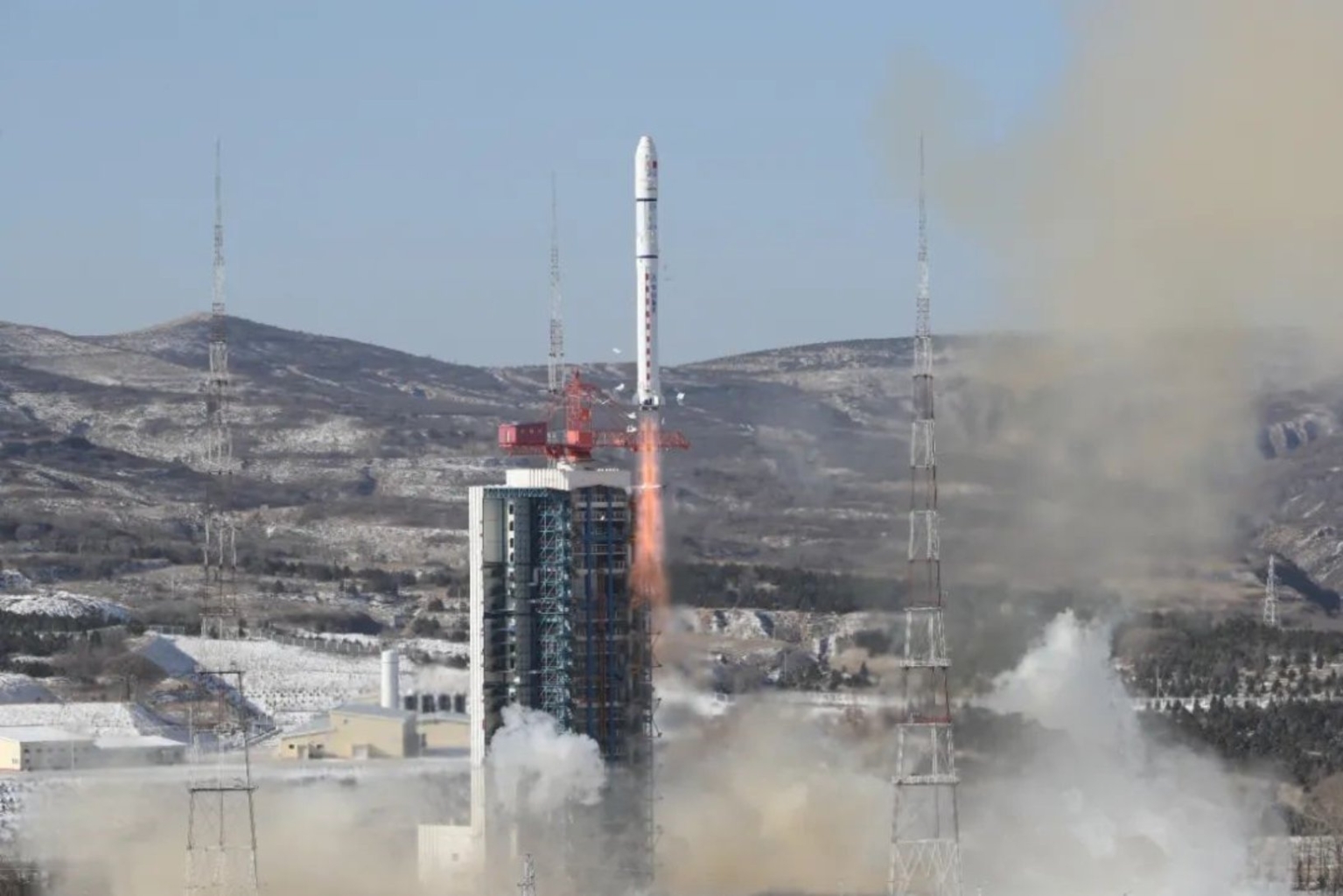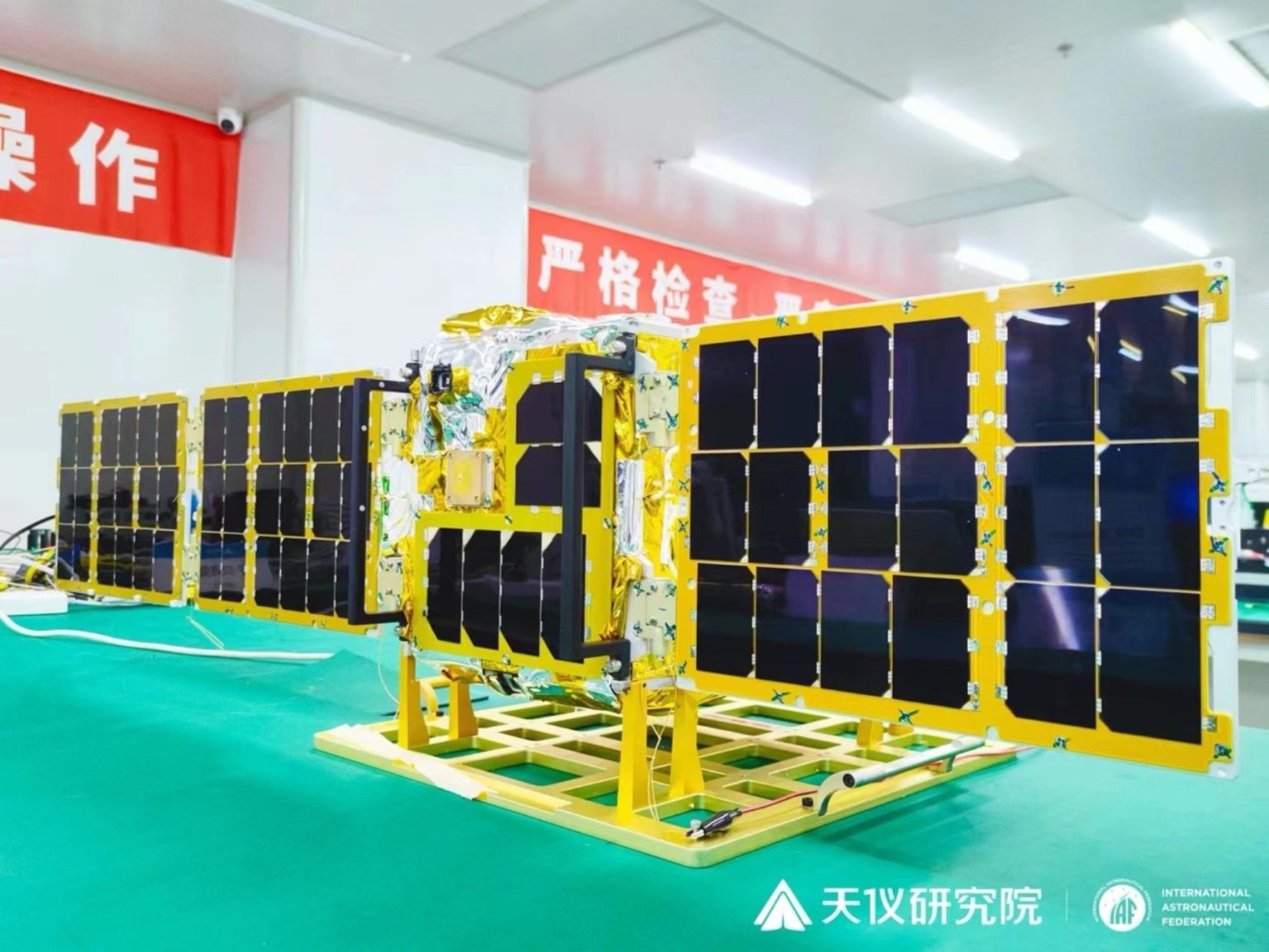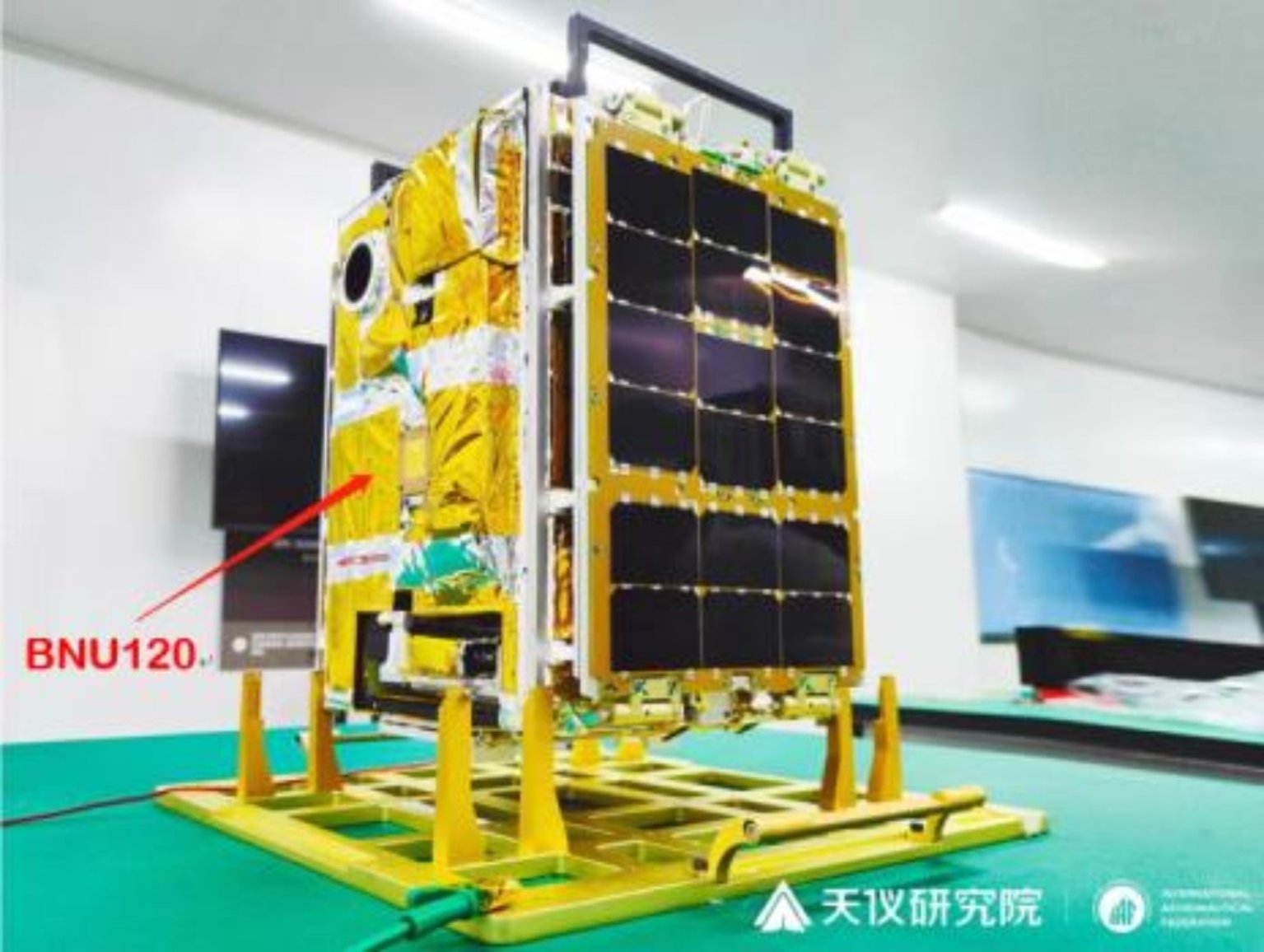Beijing Normal University's Satellite BNU120 (Tiange Project GRID-07) is Successfully Launched
At 11:14 am, Jan 15, Beijing Normal University's satellite payload, BNU120 (Tiange Project GRID-07) which was carried on Spacety's TY-28 satellite was launched by a CZ-2D carrier rocket from Taiyuan Satellite Launch Center and entered the preset orbit. The satellite is in good condition now, which is also the first satellite payload developed by Beijing Normal University in the Tiange Project.

The BNU120 (GRID-07) team is composed of more than 20 teachers and students from the College of Nuclear Science and Technology and the Astronomy Department of Beijing Normal University. Among them, Zhao Yiwei, Qi Xinrui and Jiang Wenyang, undergraduates of 2018 from the College of Nuclear Science and Technology , participated in the development and calibration of the payload. Lin Shijie and Shen Songyu from the Astronomy Department in 2020 were responsible for the preparation of the load operation and data analysis. Tiange team of Tsinghua University gave great support to the development and operation of the satellite payload. The BNU120 is expected to be capable of both independent observation and research and joint observation with multiple orbitally-launched satellite networks. It will carry out continuous in-orbit observation and analysis of high-energy bursts in the universe and some special celestial bodies.
The "Tiange Project", initiated by Tsinghua University and co-operated by several universities and research institutes, is a space science project with undergraduate student teams as the main body. It is also a basic science talent training project with interdisciplinary science and technology disciplines. The main scientific goal is to find gamma-ray bursts coformed with gravitational waves, fast radio bursts and other high-energy astrophysical transients. Beijing Normal University is one of the first batch of universities to participate in the Tiange Plan. The "Tiange Project" is about to enter the stage of building a constellation observation network with multi-satellite loads, and carry out in-depth cooperation and collaborative data analysis with GECAM and other large gravitational wave gamma-ray burst scientific satellites. It is expected to obtain more breakthrough observation and research results after the ground-based gravitational wave detectors are upgraded and switched on again.

TY-28 Satellite

BNU120 Payload’s Position on the Satellite
The Tiange Project in BNU is supported by the Astronomy Department, the Institute of Frontier Science in Astronomy and Astrophysics, and the College of Nuclear Science and Technology. Professor Lin Lin from the Institute of Frontier Science in Astronomy and Astrophysics, Professor Liu Yuanyuan and associate professor Jiang Jianyong from the College of Nuclear are co-supervisors of the Tiange student team. The Tiange team is also supported and guided by Professor Chen Li, Zhong Jiayong, Zhu Zonghong, Gao He, Associate Professor Xing Nan and Lu Ligen from the Department of Astronomy. Professor Zhang Fengshou from College of Nuclear Science and Technology also offered help.


